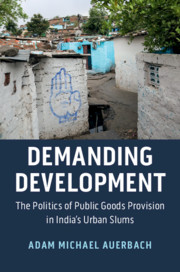What causes stark differences in living standards between subnational units? What can countries do to lessen such variations? This article argues that there is an aspect of national policy frameworks that impacts subnational provision of social services: the sensitivity of policy to the particularities of place. Place-sensitive policies make adaptations to the way social services are organized and provided across a country, so that they are better equipped to deal with the different characteristics of places and better support their well-being. When policies are place-sensitive, subnational provision is facilitated in poor, rural, and marginal locations in a country. In contrast, place-blind policies employ a one-size-fits-all approach that excludes people in vulnerable areas and aggravates inequalities in social service provision and social outcomes. By studying the Colombian case, this article demonstrates that a key placeblind feature of its healthcare model disproportionately affects small localities.

